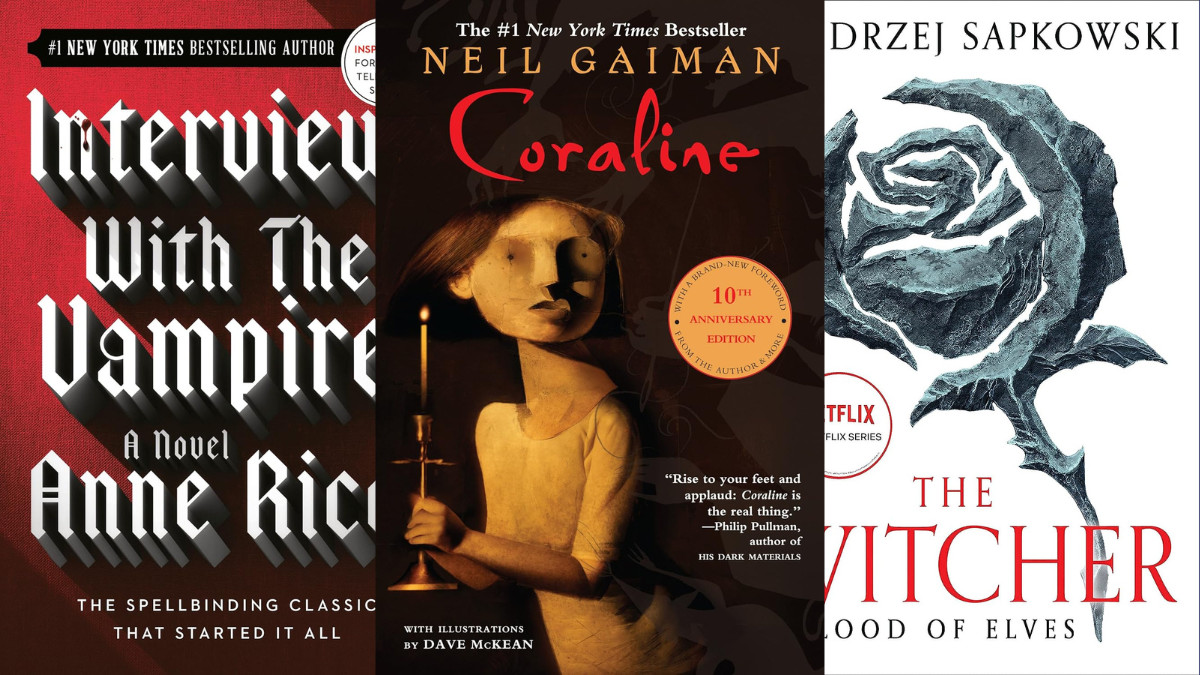There’s no consensus on what defines a dark fantasy book, but readers usually know when they’re reading one. Grim atmospheres, antiheroic protagonists, and a more macabre approach to the supernatural are hallmarks of the dark fantasy genre, coming together to deliver an experience that skews closer to horror than fantasy.
Dark fantasy refuses to conform to anyone’s standards, meaning the genre’s free to explore a near-bottomless pool of plots, themes, and character arcs. I’m not an expert on the genre, but the ten books I chose for this list are excellent introductions for newcomers who want to experience the shadowy world of dark fantasy for the first time.
10. Interview with a Vampire, by Anne Rice
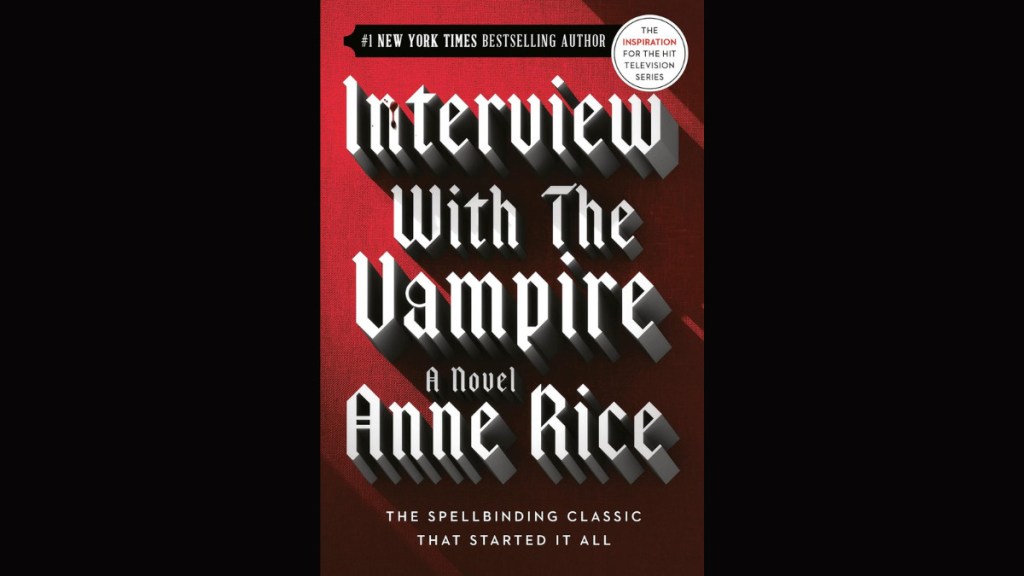
Interview with a Vampire is one of those books that tells you what it’s about on the cover. Louis de Pointe du Lac, a vampire, agrees to be interviewed by a reporter he only ever refers to as “the boy,” recalling in writing the long, violent life his decision to become a vampire forced him to live.
Anne Rice takes full advantage of her unique staging device, using what amounts to an overly long interview to weave together an elaborate tale about the horrifying ways time can change a person with no expiration date, all told through Louis’ elegant yet brutally honest voice.
9. The Shadow of the Torturer, by Gene Wolfe
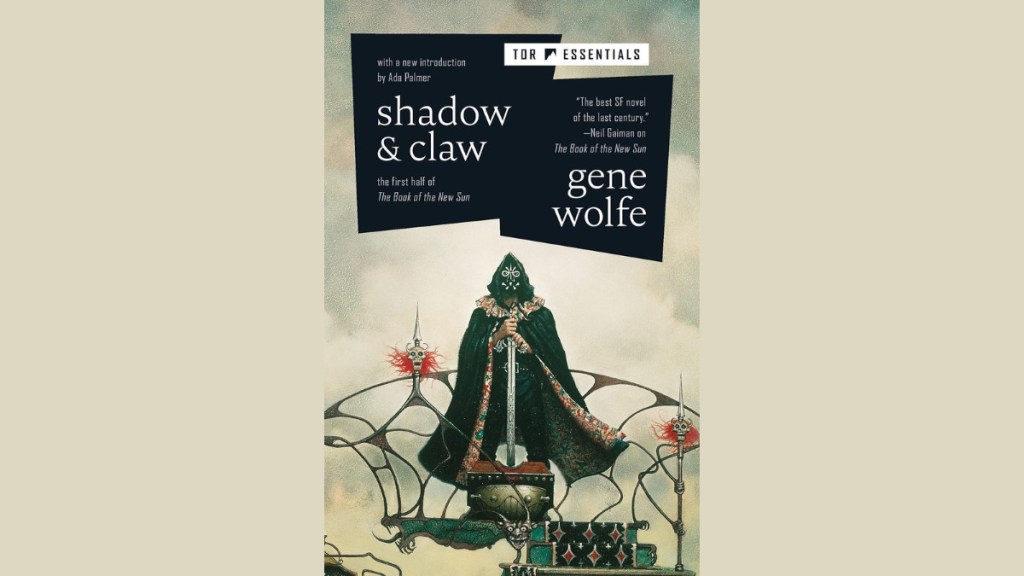
The Shadow of the Torturer unfolds in a post-apocalyptic world where torture ranks surprisingly low on the “worst things that can happen to someone” list. We follow Severian, a member of a torturer’s guild who’s forced into an arduous exile after he takes pity on one of the guild’s prisoners.
Morality is a pliable thing in Severian’s bleak world, and his journey across sun-baked deserts and grimy city streets forces him to question his loyalty to his guild and the corrupt kingdom it serves. By the end, Severian and the reader wonder if he’s the hero or the villain of history’s final chapter.
8. The Gunslinger, by Steven King
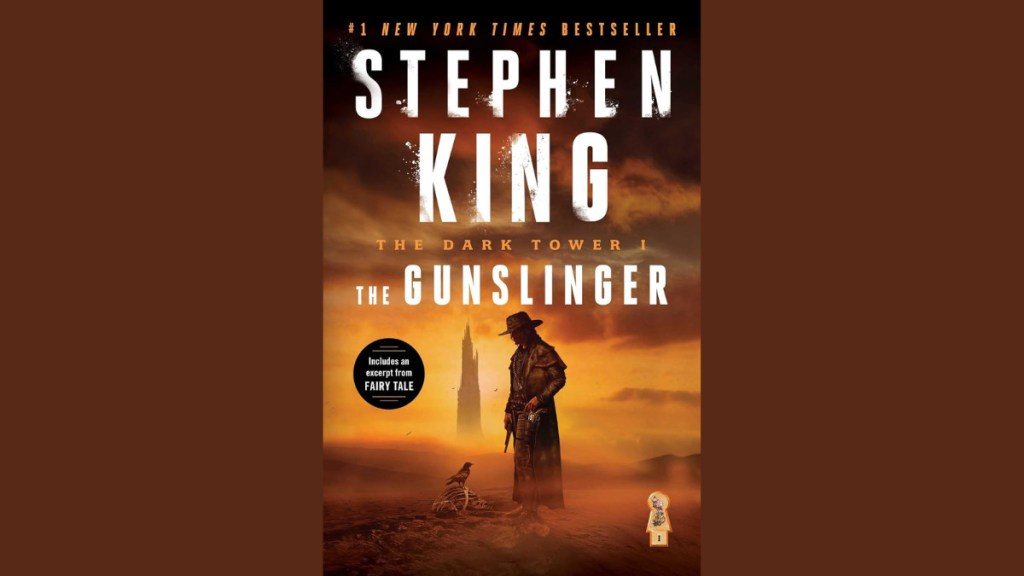
The Gunslinger is the first volume in Steven King’s Dark Tower series and arguably the horror novel’s first real crack at epic fantasy. We follow Roland, a gunslinger locked in a seemingly endless showcase with his nemesis, the “Man in Black.” Roland travels through a wasteland infested by demons, mutants, and madmen, and his fate is forever changed when he encounters Jake Chamber, a boy from Earth, a land the gunslinger has never heard of.
Later installments in the Dark Tower series are jam-packed with references to Steven King’s library of work, but The Gunslinger keeps things simple. The Wild West-inspired world Roland and Jake journey through is as morbid as it is wonderous, and the tender bond that forms between the two will keep you glued to the pages.
7. The Name of the Wind, by Patrick Rothfuss
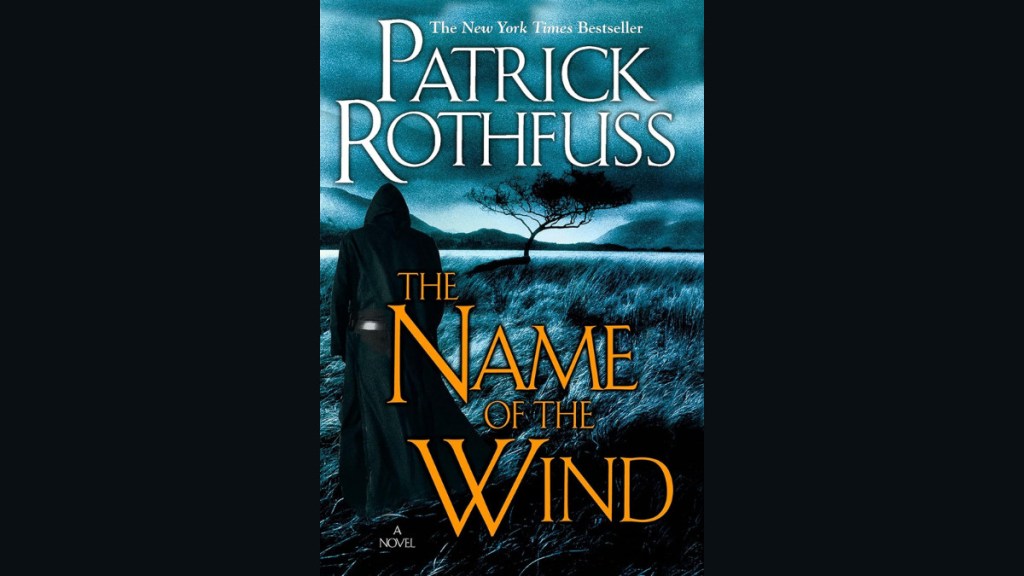
The Name of the Wind marks the beginning of Patrick Rothfuss’ The Kingkiller Chronicles, and it’s a strong start. A story within a story, the novel recounts the life of Kvothe, an innkeeper who, unbeknownst to most people in his life, is a powerful magician who earned a mixture of fame and infamy for slaying a king.
Rothfuss’s stellar prose breaths to life an equally impressive dark fantasy world with one of the most unique magic systems ever penned. While we’re still waiting for the third and final installment of the series, The Name of the Wind will keep you under its enthralling spell until you’ve flipped the last page.
6. A Monster Calls, by Siobhan Dowd and Patrick Ness
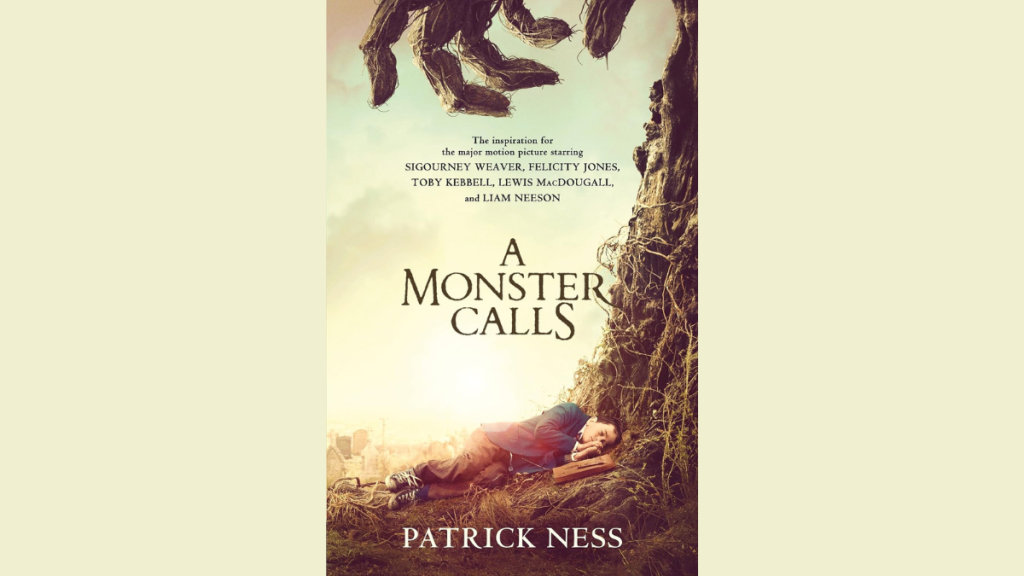
Lost books have brought tears to my eyes, but A Monster Calls is one of only a few books that’s made me bawl. We follow Conor O’Malley, a thirteen-year-old boy who’s visited in the dead of night by a colossal monster. The monster tells Connor three stories that, in ways that don’t reveal themselves right away, reflect the hardships the boy is facing, preparing him for the impending tragedy he already knows is coming.
Patrick Ness tells the final story from Siobhan Dowd’s mind with the same empathic prose he used in his incredible Chaos Walking trilogy. Many readers will relate to Conor’s story, and the catharsis his time with the monster helps him reach will make all but the hardest-hearted readers’ eyes water.
5. Northern Lights, by Philip Pullman
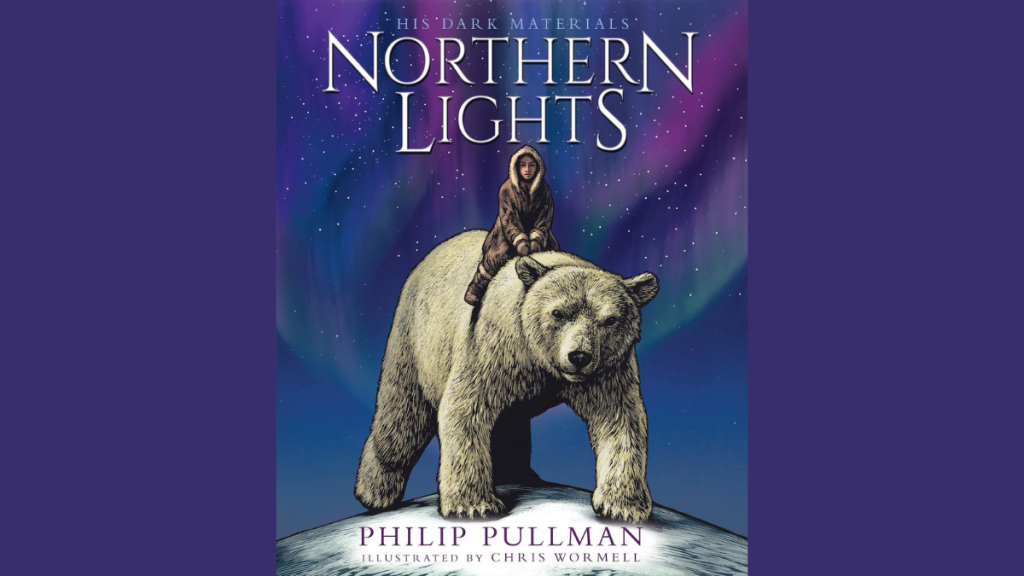
Northern Lights may be for kids, but that doesn’t stop it from delving into dark territory. We follow Lyra Belacqua as she sets out to find her missing uncle and best friend, both of whom vanished after they spoke out against the theocracy that rules their world.
Phillip Pullman creates an intriguing world where children are born connected to shapeshifting spirits, ships sail through the sky, and an organized religion wields far too much power over the world. That world, and the journey Lyra takes through it, asks difficult questions about religious fundamentalism, the hardships of adolescence, and the ways knowledge helps us find ourselves and our way in the world.
4. Dracula, by Bram Stocker
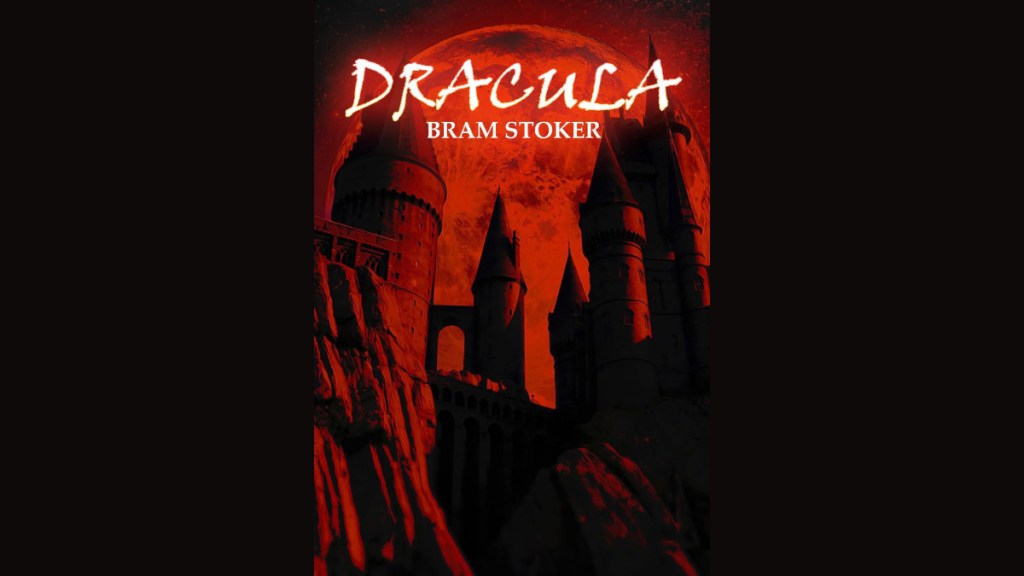
Dracula needs no introduction, but I’ll try my best. This seminal gothic horror novel recounts the hapless solicitor Johnathan Harkens’ terrifying encounter with Dracula and the chaos that unfolds when the Transylvanian noble follows him to London, told in letters, diary entries, and newspaper clippings.
While it wasn’t the first book about vampires, Dracula’s titular villain has become the quintessential vampire. The novel’s unique exploration and deconstruction of sexuality, gender roles, and Victorian values are still heavily discussed in literary circles today.
3. Blood of Elves, by Andrejz Zapkowski
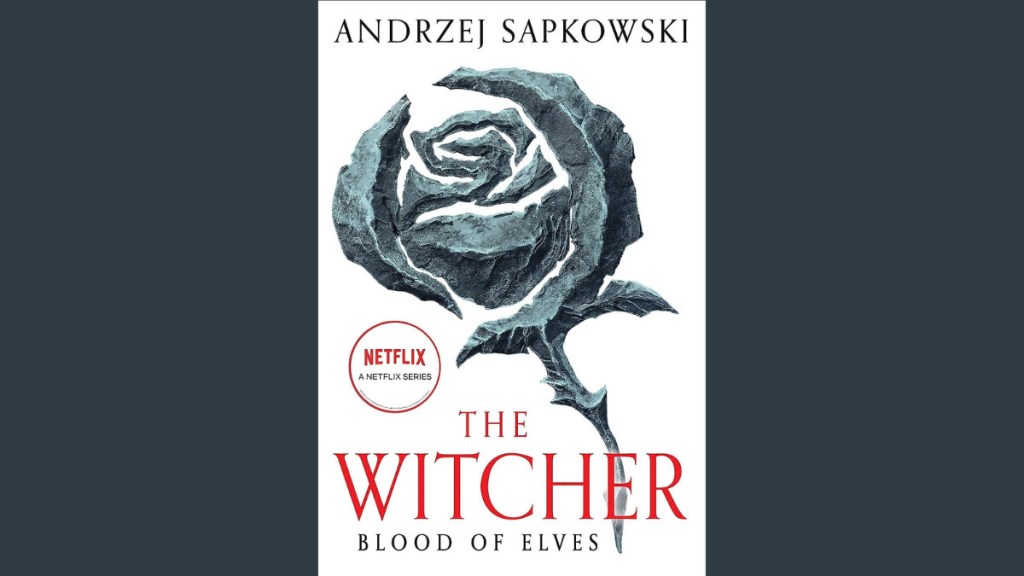
Blood of Elves starts Andrejz Zapkowski’s The Witcher saga with a bang. We follow Geralt of Rivia as he protects Ciri, the heir to the fallen kingdom of Cintra, from monsters and agents of the mighty Nilfgardian Empire alike.
Blood of Elves establishes The Witcher‘s world as a place where the typical trappings of epic fantasy have been corrupted almost beyond recognition. Trolls and undead roam freely, kings regularly backstab each other to stave off conquest, and elves and dwarves have devolved into radical terrorists drowning in their hatred of humanity.
2. Coraline, by Neil Gaiman
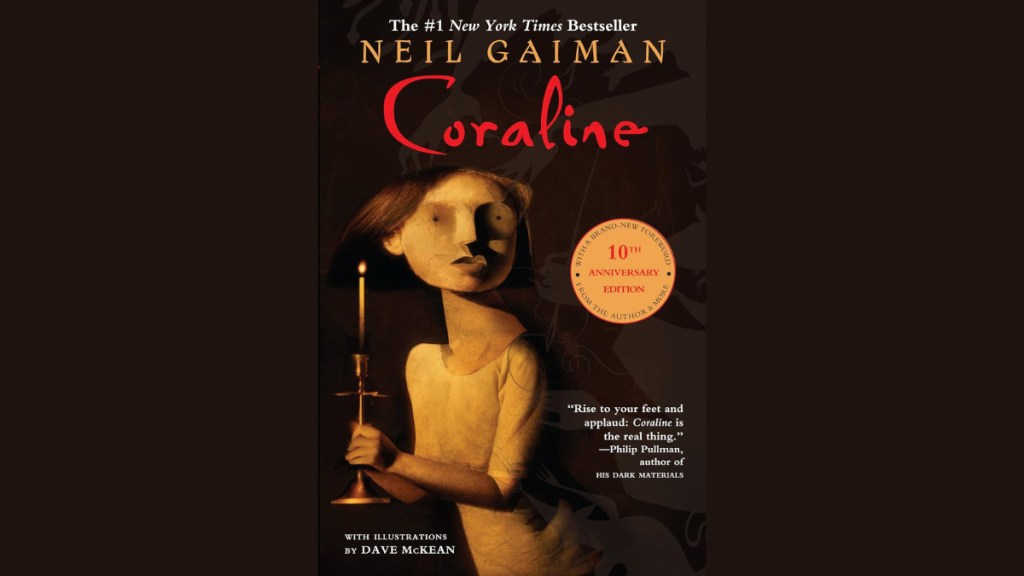
Coraline is a modern fairy tale that understands that fairy tales were never the bright, colorful stories that Disney and other companies portray them as. We follow Coraline as she discovers a secret door in her new house that leads her to a magical realm inhabited by “another” version of her family, where everything’s a little too perfect.
Neil Gaiman tells one of the darkest children’s fables ever, conveying a healthy mix of wonder and horror through his iconic, down-to-earth prose. If my words aren’t enough to convince you that this creepy parable is worth a read, the fact that it’s been adapted into a stop-motion animated film, a graphic novel, and two theatrical adaptions might.
1. A Game of Thrones, by George R.R. Martin
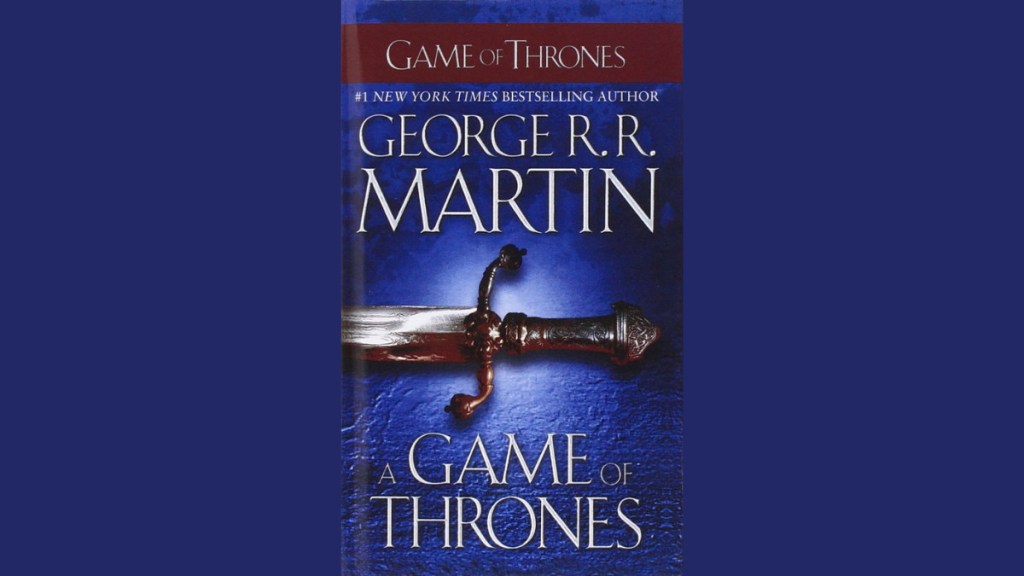
A Game of Thrones is so much more than the start of George R.R. Martin’s A Song of Ice and Fire series; it’s the beginning of one of the most popular media franchises ever made. Ned Stark, the honorable Warden of the North, travels south to King’s Landing to serve as his old friend King Robert’s second-in-command. In doing so, he set in motion a series of events that plunge the continent of Westeros into a bloody war of succession.
Westeros is home to dragons, blood magic, and the undead, but these fantastical elements are secondary to the compelling political intrigue that drives the story forward. A Game of Thrones has everything a dark fantasy novel needs, and that’s why it’s number one on this list.
